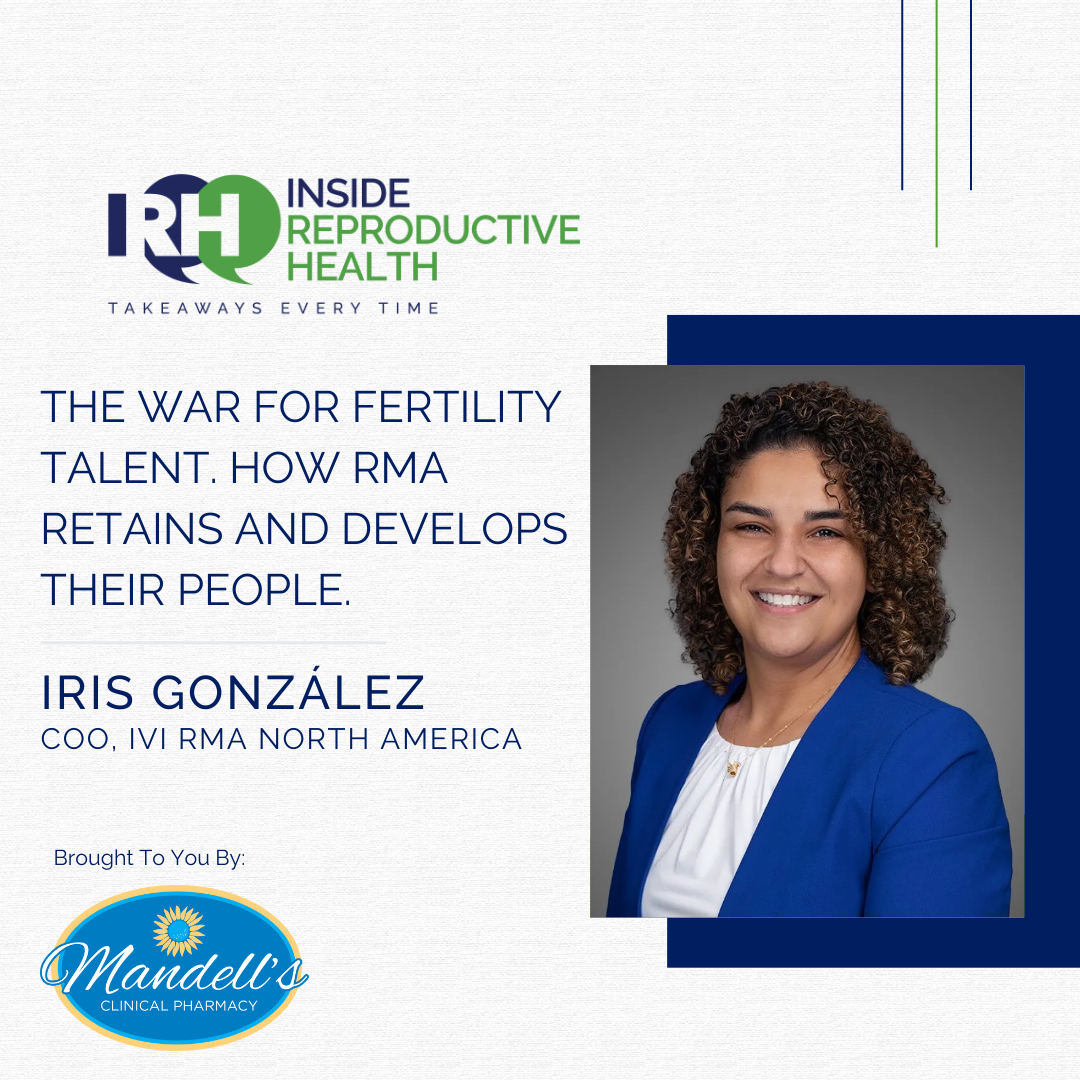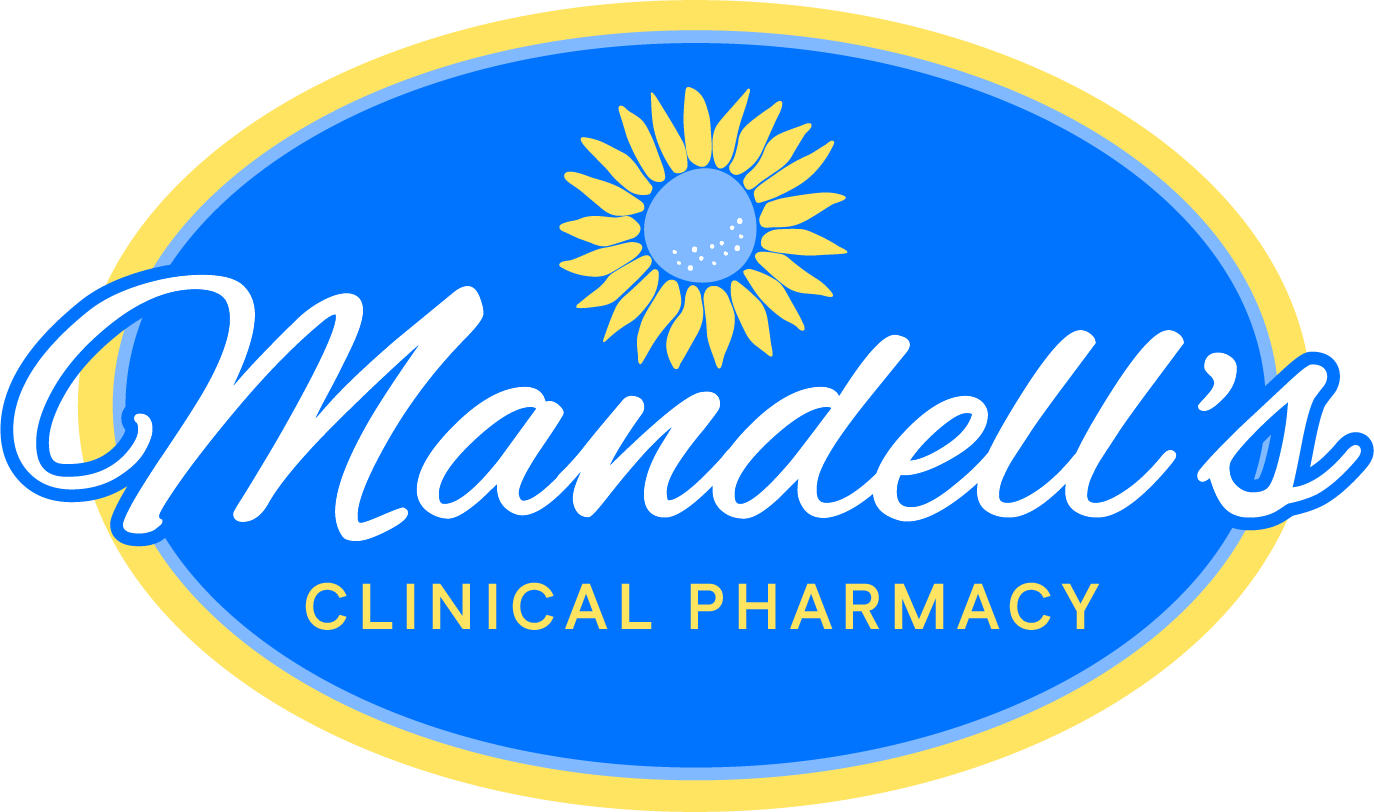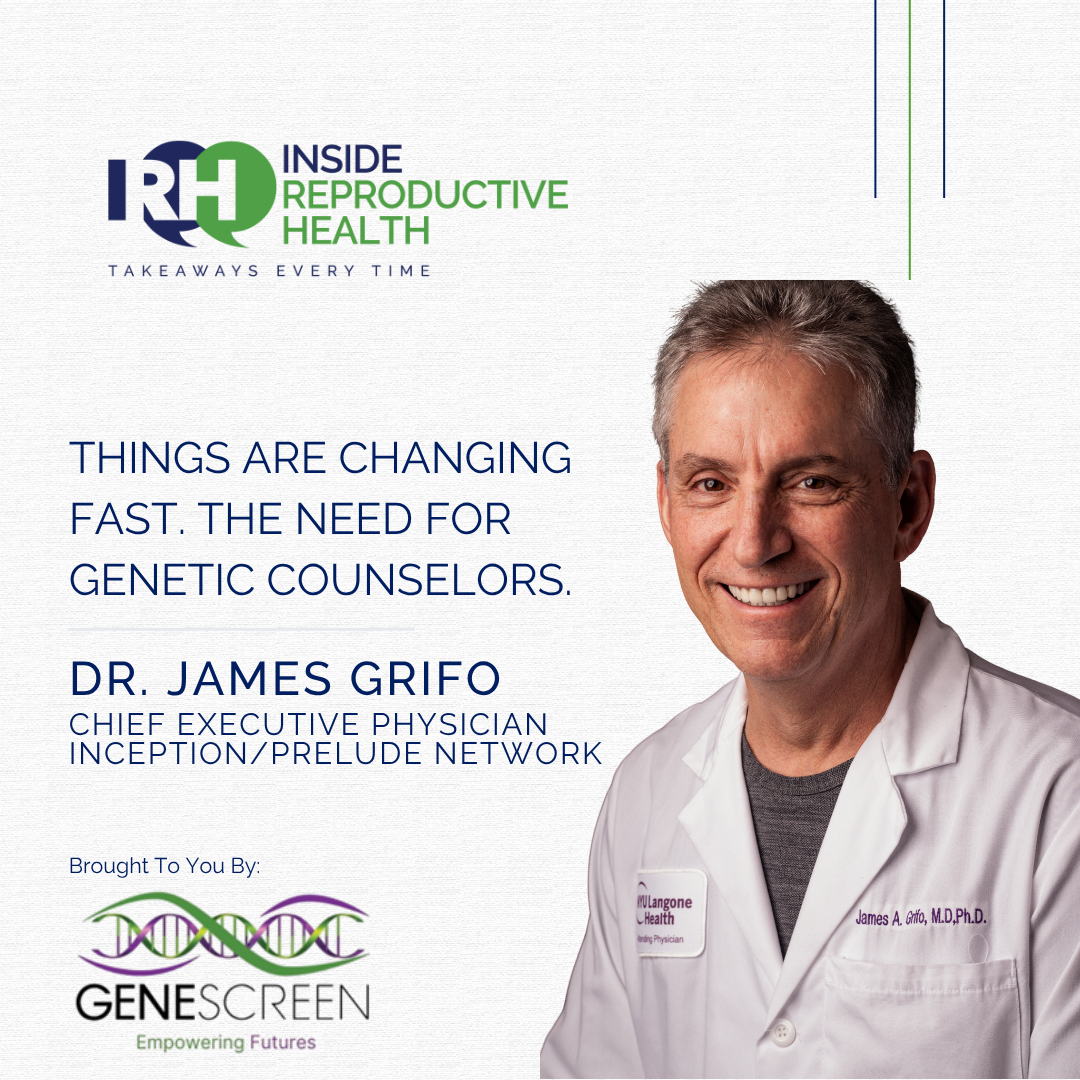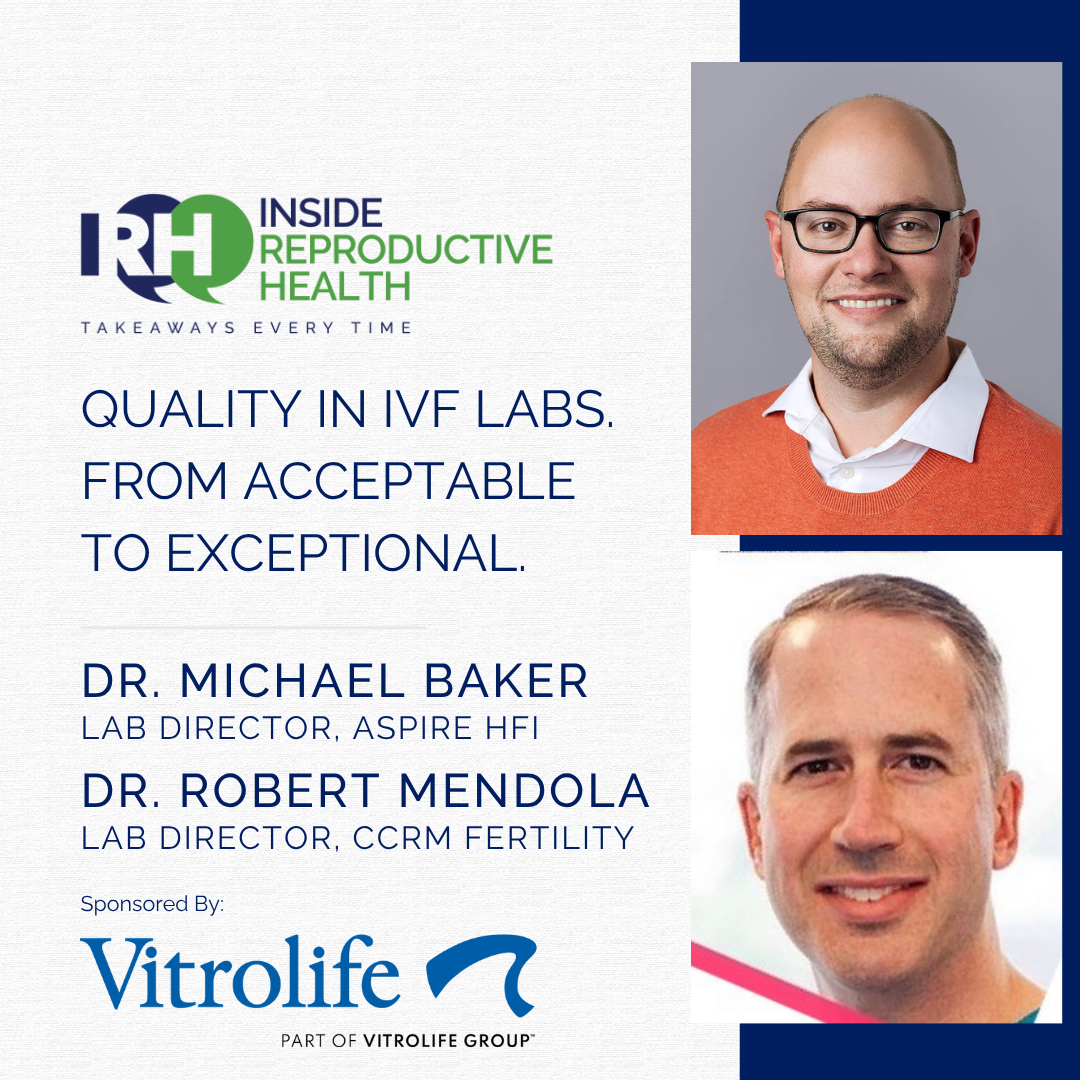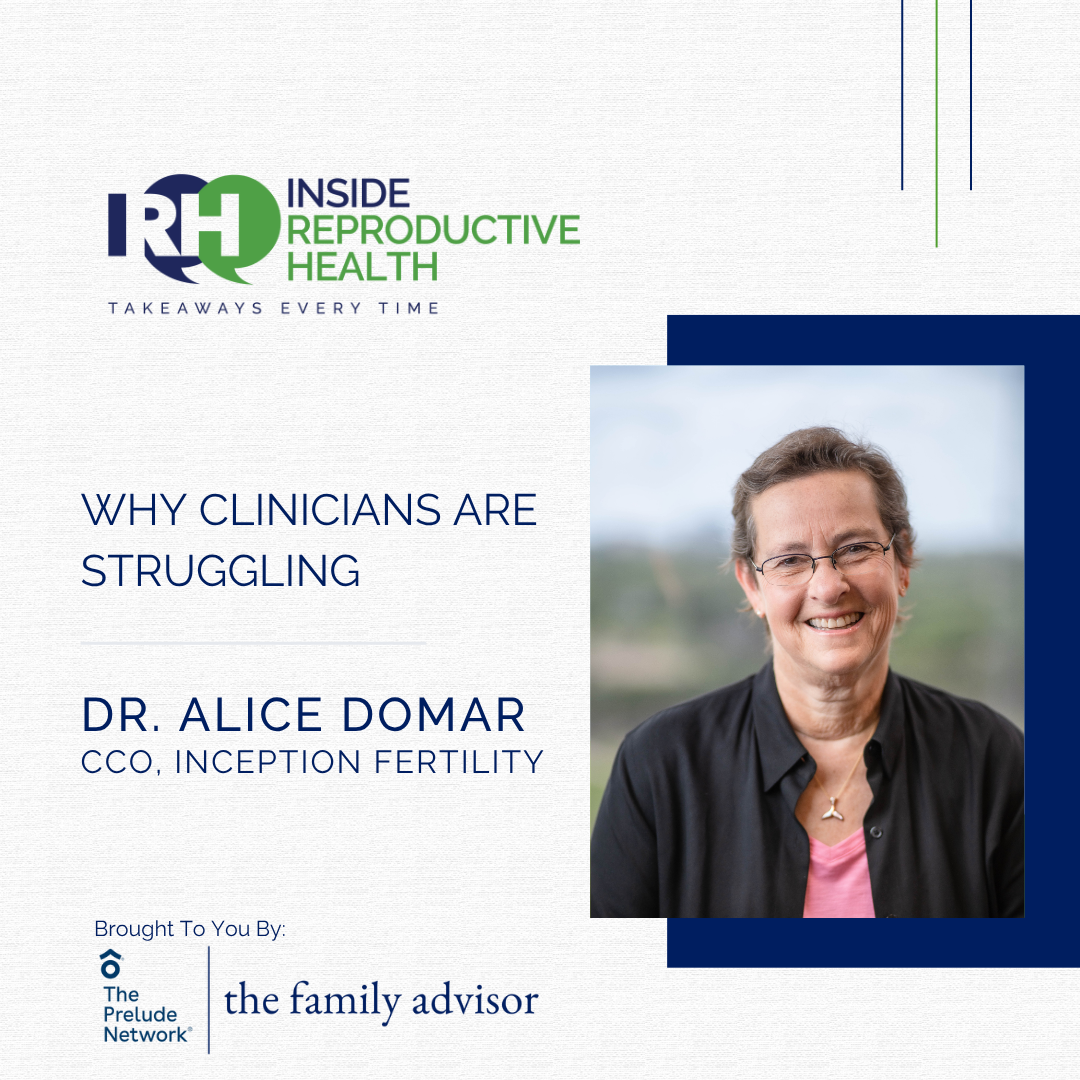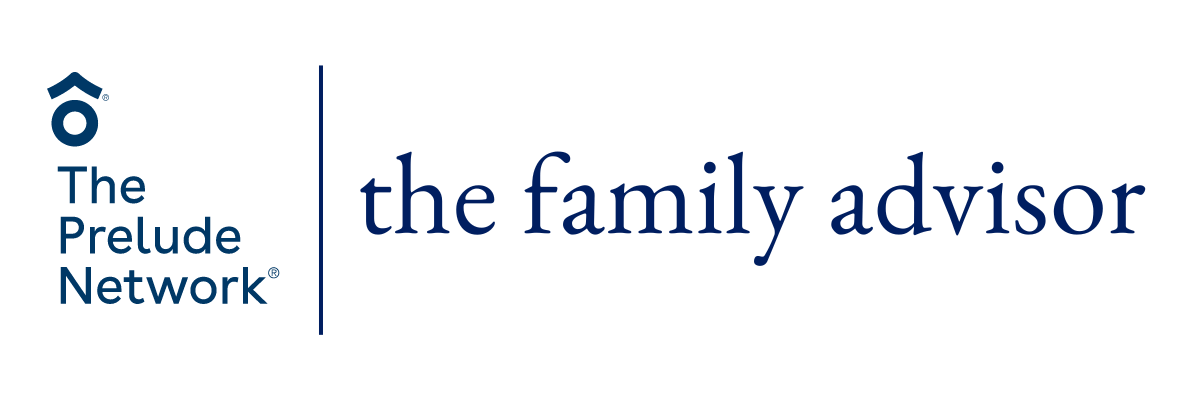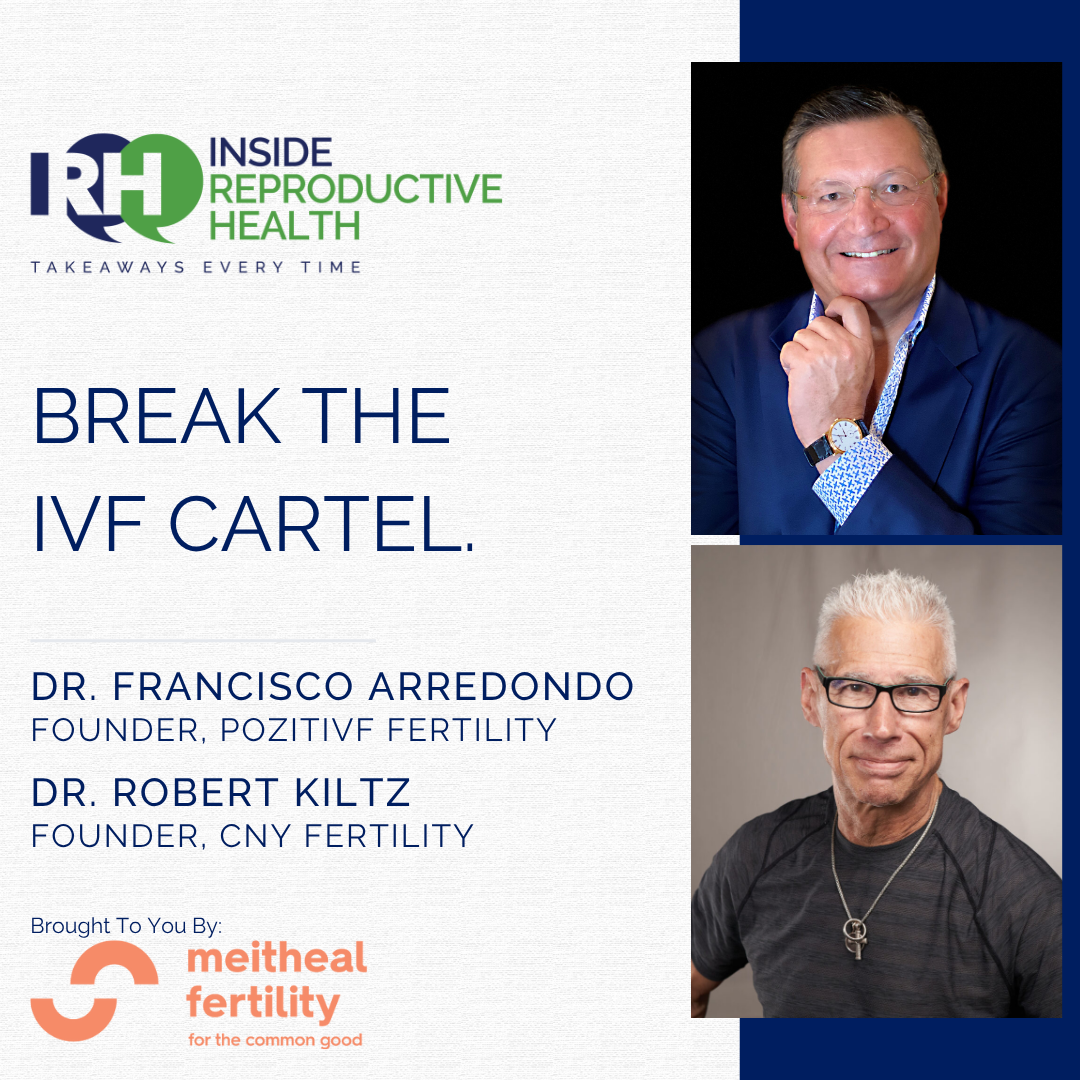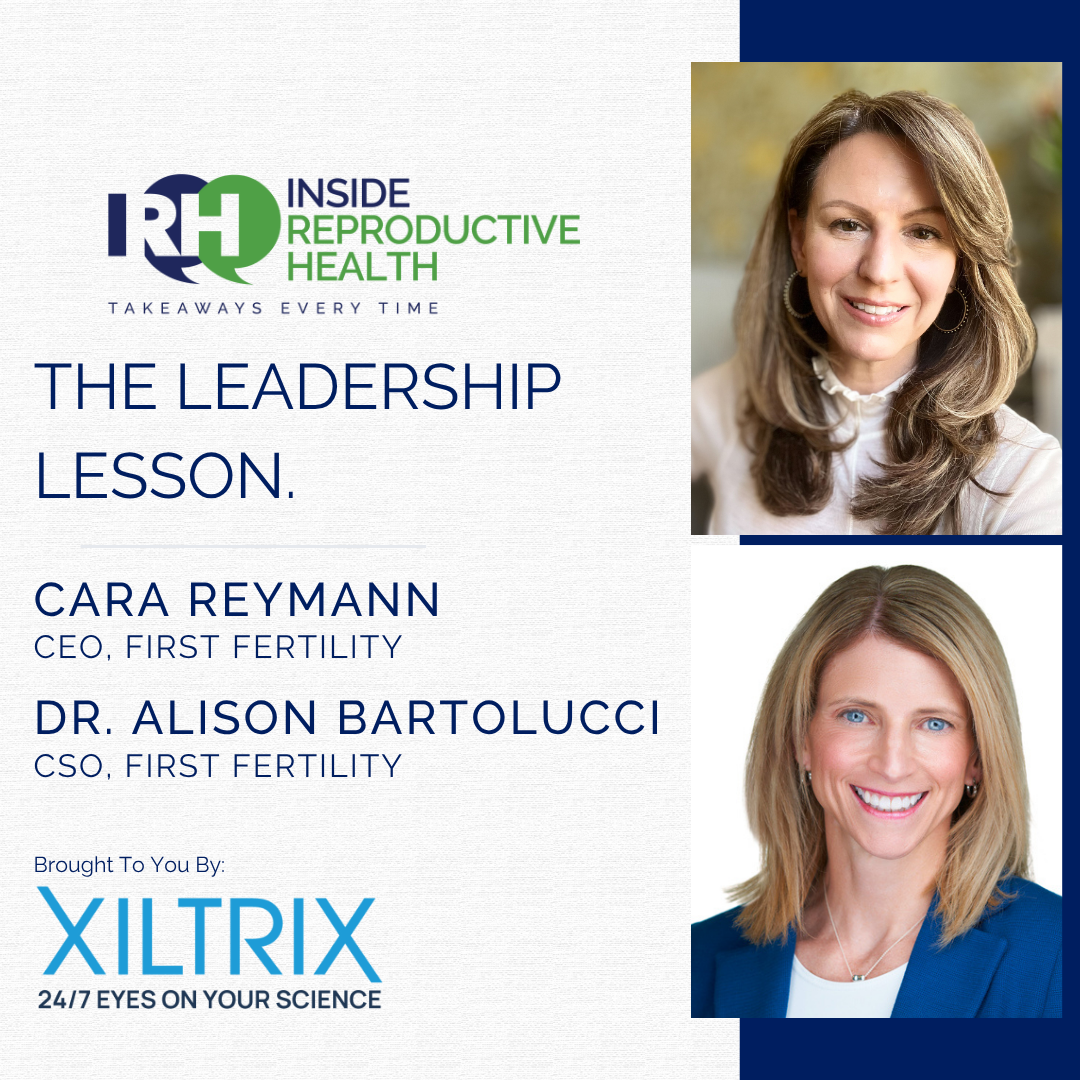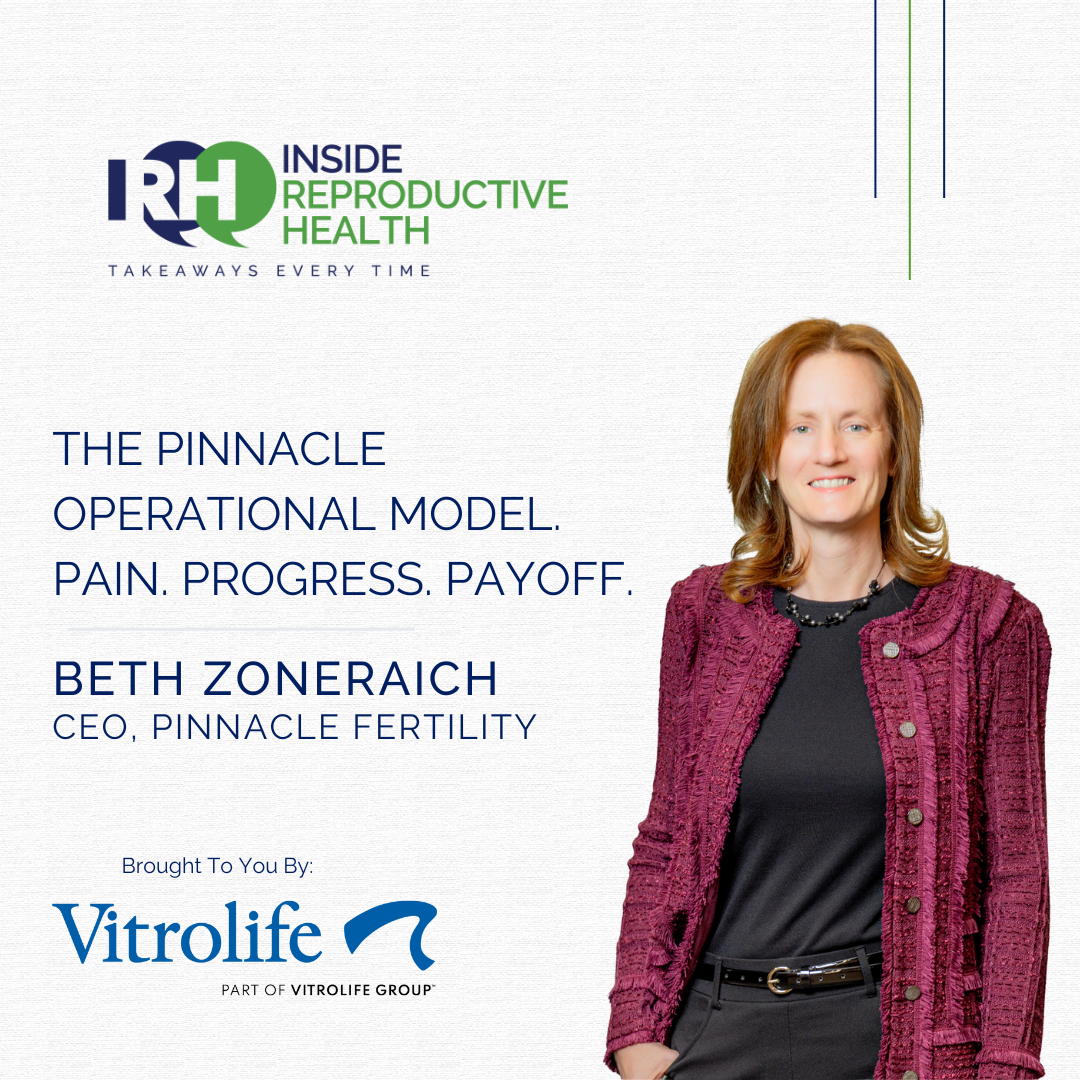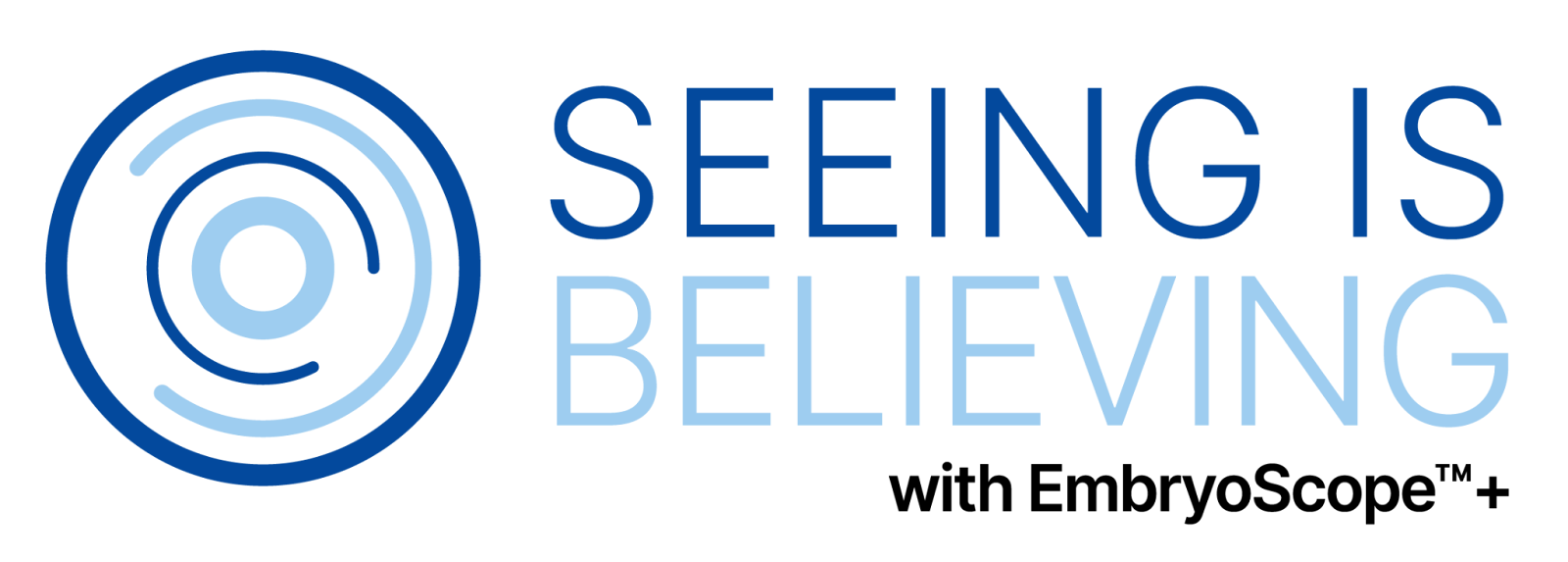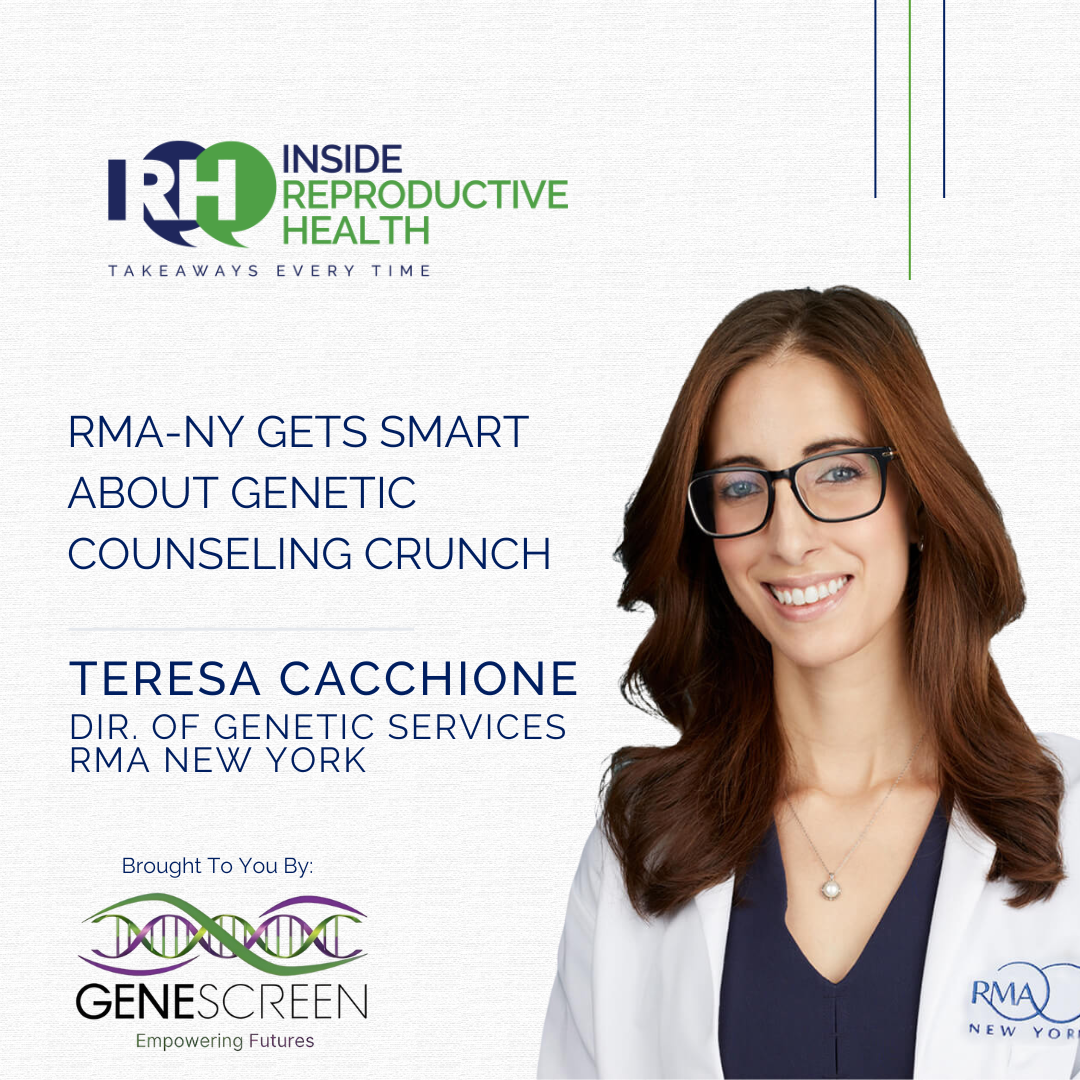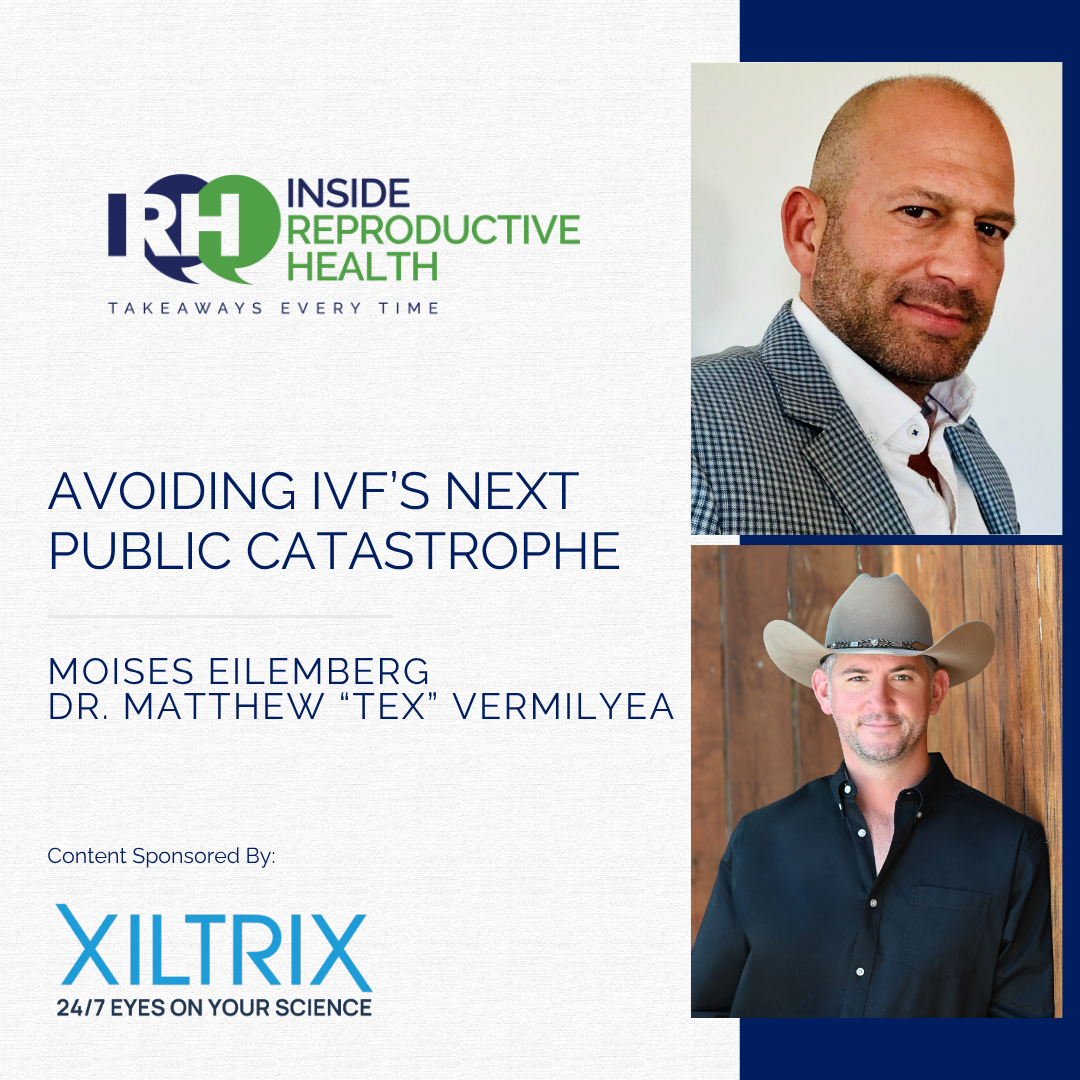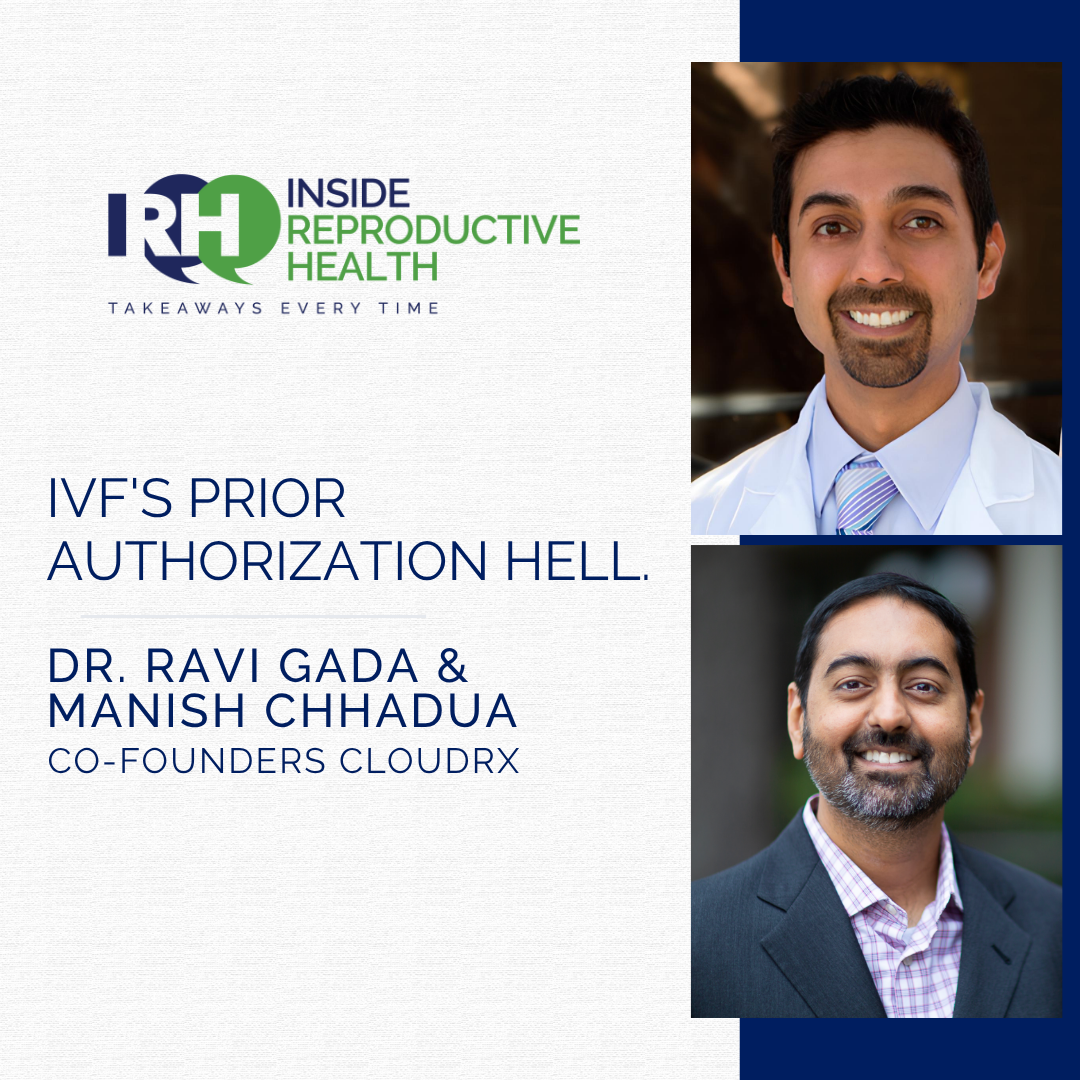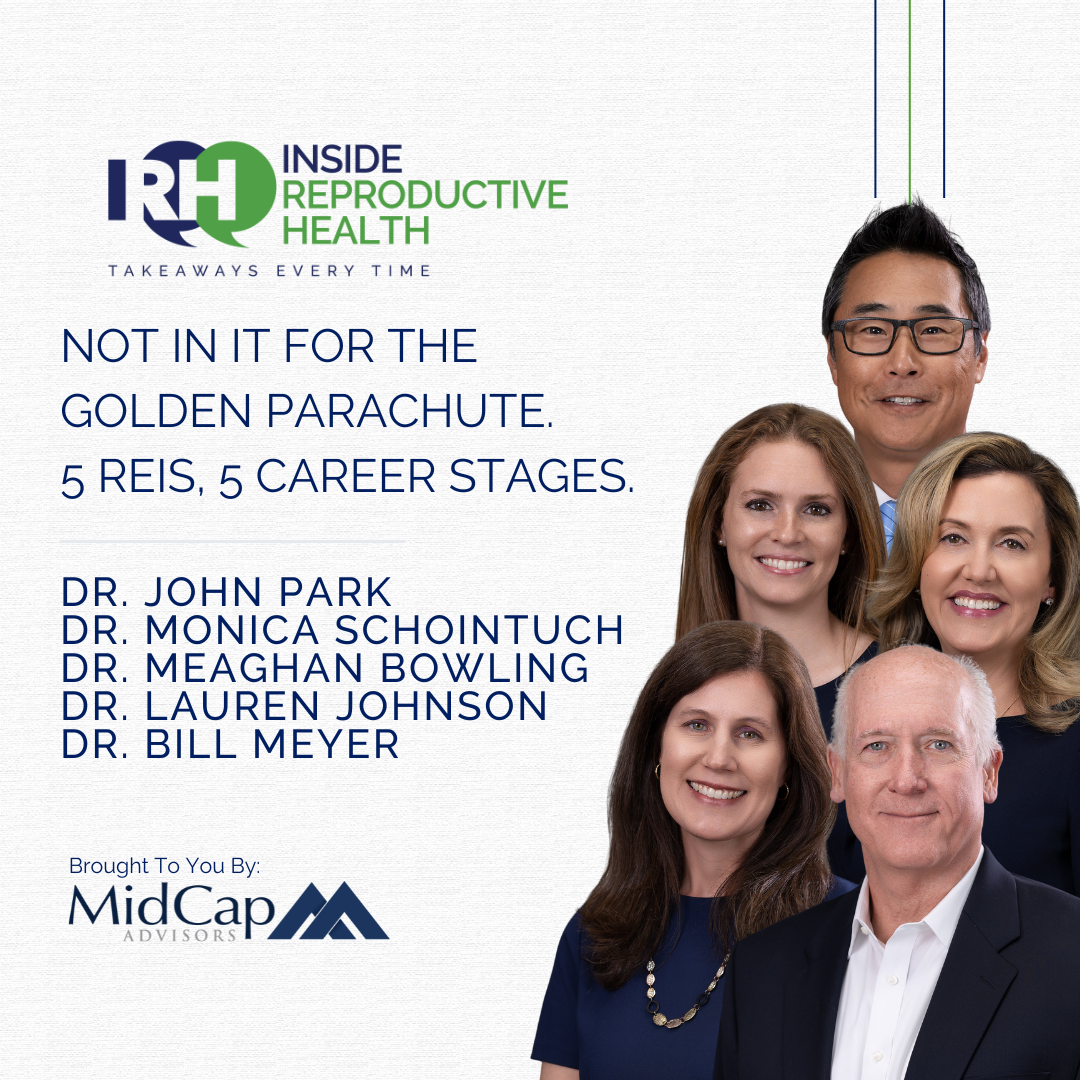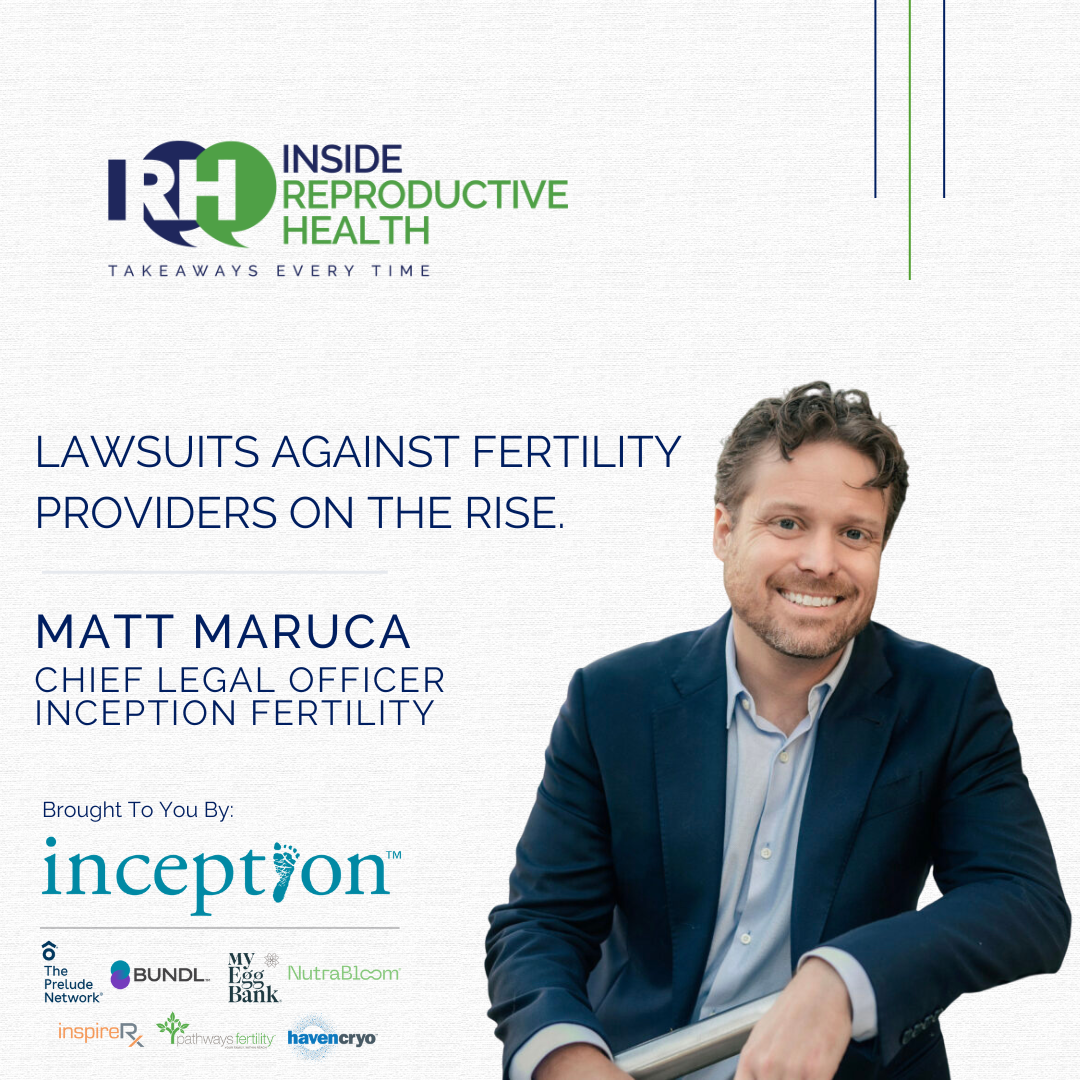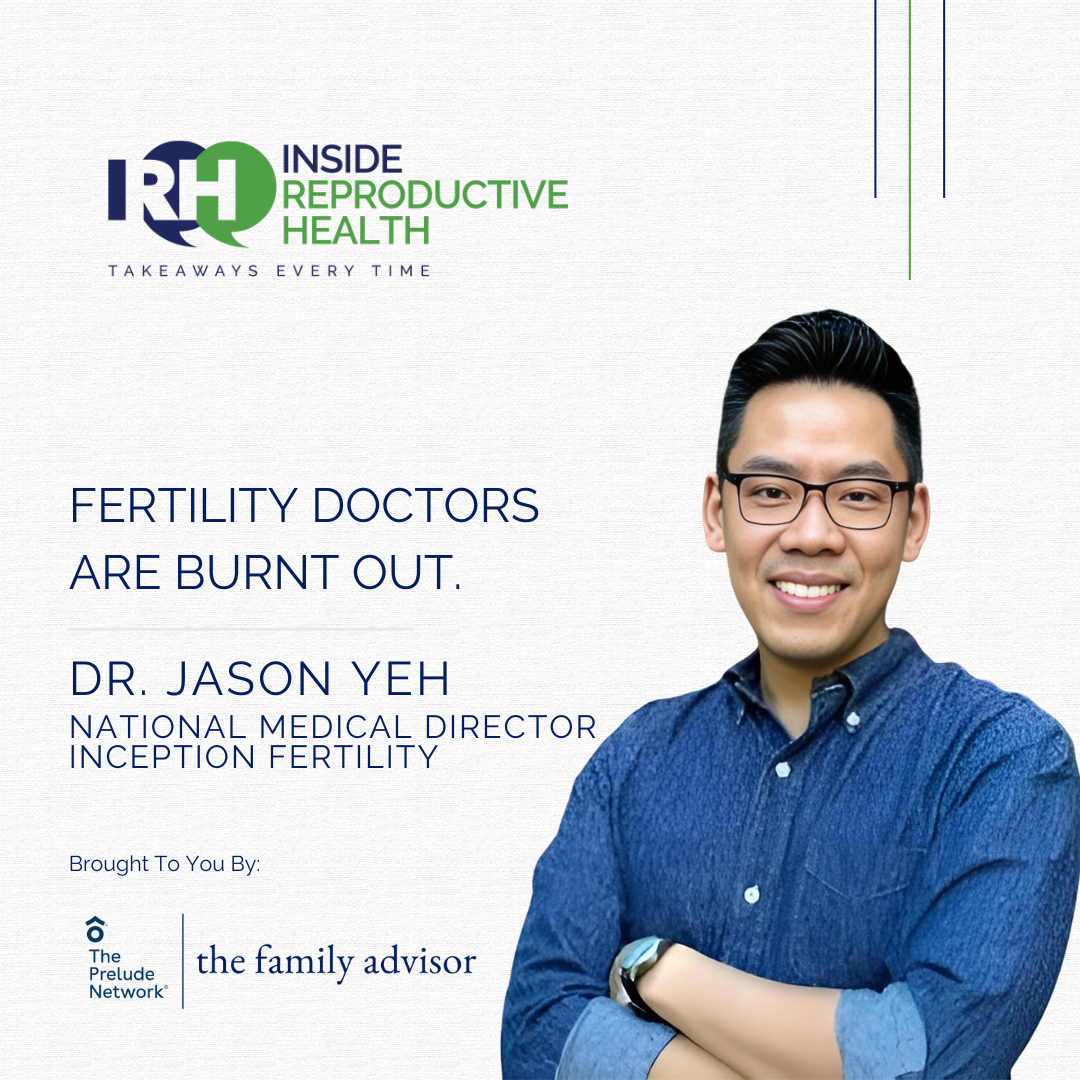Today’s Advertiser helped make the production and delivery of this episode possible. But the themes expressed by the guests do not necessarily reflect the views of Inside Reproductive Health, nor of the Advertiser. The Advertiser does not have editorial control over the content of this episode, nor does the Advertiser's sponsorship constitute an endorsement of the guest or their organization. The guest's appearance is not an endorsement of the Advertiser.
How do large fertility networks retain great people when everyone is struggling to do the same?
In this week’s episode of Inside Reproductive Health, Iris González, Chief Operating Officer of IVI RMA North America, talks about how one of the largest fertility organizations in the country approaches retention, leadership, and patient experience at scale.
Iris shares:
How IVI RMA uses regular operator meetings to address retention across practices
The dyad leadership model used throughout the organization
IVI RMA’s built-in backup staffing strategies
Why IVI RMA implemented patient advisory councils (and how they act on the feedback)
The operational changes they made to improve financial counseling
How IVI RMA tripled patient survey participation (While improving NPS)
Patient-Centered Fertility Clinics Are Fighting for Their Freedom of Pharmacy Choice
When Your Patients Pay Twice as Much… Who Really Wins?
One clinic got tired of the red tape at their payor’s preferred pharmacy and decided to fight for their freedom of choice. The result? Huge savings for their patients—and smoother workflows for their nurses.
Here’s what one patient emailed their nurse:
“I received all my medications from Mandell’s for around $5,300. The same prescriptions were nearly $10,000 through ****, and over $7,000 at ***—even with insurance.”
See what happens when you partner with Mandell’s Pharmacy
-
Iris González (00:00)
A team member as they're mastering the current role they can see a role far away and have ideas of what success look like for that role. But it's really important for us to outline key competencies, so that team members understand and see what they cannot see from their current seat and allow them to continue to explore, in a safe way that also honours team members and tries to mitigate as much as possible that resentment type of experience.
Griffin Jones (00:37)
How does the IVIRMA handle retention, you're going through the same problems that everybody else is, aren't you? It is hard to keep really good people. IVIRMA has a lot of people. So how do they do it? They meet with their practice operators twice a month, all the practice operators from all the IVIRMA practices in North America, they meet, what do they talk about? Well, one of the things that they talk about is how they retain their people. What did they come up with? I talked with their chief operating officer, Iris González, she talks about retention of personnel, she talks about the dyad leadership style that RMA employees not just at the top level, but in all of their regions and practices. She talks a little bit about their physician meetings, nursing boot camps.
She talks about backup solutions that RMA has to make sure that they don't just have to fill a vacancy for the sake of filling it. She talks about something that RMA just implemented at the end of 2025 or finished implementing, which are patient advisory councils.
She talks about how they filter and implement the feedback from these patient advisory councils. And you know what one of their biggest pain points was these patients? financial counseling process. What did RMA do? Now, instead of counselors just reporting to their local practice manager,
They report to a team that runs all of the financial counselors for all of the practices. And Iris shares some of the methods that they've implemented help them to retain and delight patients.
Iris also shares how RMA tripled their response. So wasn't just that they went from 8 8.5 on the net promoter score to nine.It's that they tripled the number of people. that filled out the bloody survey. We all struggle to do that, don't we? How did RMA do it? Iris González explains.
I also share a little story about Mandell's Pharmacy and a clinic that was really happy with them. A note from a clinic from a patient because everybody loves working with Mandell's. I hope you enjoy this conversation with Iris González, Chief Operating Officer at IVIRMA North America.
Ms. González, Iris welcome to the Inside Reproductive Health podcast.
Iris González (03:48)
Griffin, thanks so much for having me. Looking forward to our conversation and chat today.
Griffin Jones (03:53)
What's the hardest part about retaining and recruiting people at a company the size of IVIRMA?
Iris González (03:59)
It's a great question, Griffin. Certainly for us, what we are constantly mining for and thinking about is not just having a conversation with a candidate in front of us for the opportunity to get in our doors today, but also thinking about how can we help retain our talent, retain team members that are joining our community so that...
Not only are they having a satisfying career and job in the moment, but they can build a meaningful career with us. So as we grow, they can continue to grow as well.
Griffin Jones (04:36)
So you got to sell them a little bit on what's in it for them. How are you vetting them? What are some of the things that you're doing to make sure that they're going to be a good fit for the organization?
Iris González (04:48)
Yeah, I think to your point, Griffin, that as we are having conversations with candidates, it's a two way process. So just as we are interviewing them, we recognize that candidates are also interviewing us. And so for us, what we're screening for and really thinking about are three critical areas. Character, and so that's mission fit, mission orientation, it's competence, your technical skills, your technical capability.
And third is culture or chemistry fit. We're really deliberate and thoughtful around being clear around what kind of team members are really going to succeed with us. And for us, it's pretty clear. It's team members who are exhibiting behaviors are aligned with our organizational values of excellence, of research, and of world-class clinical outcomes.
And so as long as we're having conversations and interviewing with candidates there, I think that helps create that transparency early on as well. So we can make both ways mutually informed decisions.
Griffin Jones (05:55)
People will probably want me to ask about things you do to retain docs and embryologists, but for my own curiosity, I'm more curious about the people on your path in the accountability chart, the operations people.
from practice managers to other areas of ops, how you're vetting, training, developing those kinds of people, because I have come to believe that true operations people are few and far between, that many of them are either consultants, like they can tell you and they can even see the problem and they can describe it, but operations is about operationalizing. You have to make it come to life.
every day and that's totally different than just being consultant. And then the other camp that people often fall in is their project managers like they can they can manage projects effectively like they're reliable, they'll cross the thing off the to do list and they'll make sure the dates are on time. But often they'll just project manage chaos, they won't actually improve the system.
that they'll be focused on the delivery, the fulfillment of what they're supposed to do, but then they fail to really operationalize and instill better systems. How do you vet and develop those kinds of people?
Iris González (07:21)
Yeah, it's such a great question and I really appreciate how you outline that Griffin. Start with first things first, for practice operators within IVIRMA, done a really good job at identifying the competencies that are required in order to be successful in the role. And those competencies,
that inform our selection process. How do we interview? How do we set expectations? How do we provide clarity on what good looks like? All of that has been pressure tested and informed by physician leaders across the organization, as well as team members and leaders in various roles in our organization that have been here for a lot longer than me have all helped to pressure test to inform. We also spend time, I, for example, I hold
bi-weekly basis, a national practice operator meeting. And so creating a collaborative space where we can ask questions, be curious together, and build a safe place where team members can learn from each other allows me then to see leading practices, leading ways of working that then I can build systems of scale for how can we repeat and select or onboard, train, develop.
talent to be successful. And we do that, we can say that's for practice operators. We have a phenomenal nursing bootcamp program. We have phenomenal best in class lab leadership programming. So, and we're building it out more and more. We have a fantastic Chief Human Resource Officer, Tracy Ward, who joined us recently over the last six months.
So we are really taking the opportunity to codify it and scale it further. Our ambition and intent is that that will be well-defined selection process informed from team members and experts who have done the work. Like my own background, I grew through operations, owning and running clinics into multi-site leadership so that we can make sure that no matter the entry point or no matter the role, these
We feel really good that every single team member has a clear selection path and development path that creates for them optionality for how they can also grow with us as an organization.
Griffin Jones (09:41)
The National Practice Operators meeting is that practice managers and is it practice managers of different RMA practices? Is it every manager of every practice? Tell me more about that meeting.
Iris González (09:52)
Yeah, it's every single practice operator, whether you're an administrator, manager, director for every single one of our practices in North America. So Canada and the United States all participate edge to edge United States every week.
Iris González10:08)
every two weeks.
Griffin Jones (10:09)
every two weeks. How many people are on that meeting?
Iris González (10:11)
So it's a great question. So we'll have 16 field leaders across one representing each one of our markets. And then we also have a cadre of what we call home office leaders as well. So sometimes that might be our CFO, our CCO, our chief commercial officer. It might be Dr. Molinaro. It might be Tracy Ward, who I just referenced, depending on the topic. That forum is really designed
not just for deep dive curiosity questions that are facilitating agreements on how we can unify our ways of working and learn from each other, but there are also forums where we want to add value to our practice operators and develop their skill set and develop their capabilities in a meaningful way as well.
Griffin Jones (10:57)
What do you guys talk about?
Iris González (11:00)
We can talk about everything under the sun Griffin from, you know, niche patient population opportunities. Talk to me about how we're handling this type of patient and what has worked well to provide them individualized care. What might, you know, we are running into a stumbling block around recruiting X type of talent. What are ways in which we can be creative to push through that?
We have new enhancements rolling out in our proprietary EMR. Let's make sure that you understand all of the value that we have added to you and your teams on a day-to-day basis so you can maximize the usage of that. We might talk about patient sentiment, patient experience, insights that we're seeing on a North America basis or regionalized differences. We could talk about scheduling. We could talk about
Griffin Jones (11:55)
Of the different buckets of problems that you all talk about and solve together.
Iris González11:55)
competitors in the marketplace. So really it's to fortify and double down on strengths that our practice operators have and also support them in asking bigger questions to open up their aperture and their own leadership so that we can also support them in again, maximizing the impact that they can make in their practices.
Griffin Jones (12:25)
recruitment, retention, maybe patient recruitment, EMR stuff, that whole gamut, what would you say, which bucket do you find to be the most common, the most common pain points that practice operators are facing? Is there people, isn't it?
Iris González (12:40)
100%,
100%, it's retention. It's, hey, I have so-and-so talent specific role that's leaving for 25 cents extra, a dollar extra to a hospital type of environment. So recruitment is certainly the number one area of focus for our teams and for myself included.
Griffin Jones (13:04)
It's hard to find good people, they say, and getting good people that you work with at multiple different levels is key, which is why people like independent clinic star independent clinic Carolina conceptions is working with good people not just inside but everywhere that their organization touches. They sent an email to one of their payers that was from
that one of their patients because they were fighting for the freedom of choice for their pharmacy partners. Carolina conception sent this email I received all my medications from Mandell's for around $5,300 the same prescriptions were nearly $10,000 at one pharmacy and over 7000 another even with insurance Mandell's saved me thousands of dollars and preserve my insurance benefits. That practice sent that to that payer and talked about Mandell's in that way because that's what happens.
when you partner with a pharmacy that actually advocates for your patients because they're good people fighting for good people. And it makes life easier for your nurses who are also good people. Mendels helps fertility clinics simplify workflows, lower costs and deliver better patient care without the red tape. See what they can do for your team at Mendelspharmacy.com or reach out to me and I'll be happy to make the intro. That's Mendelspharmacy.com.
So it's hard to get good people, but it's also the expression of it's hard to find good people is only part true. It's hard to attract and to retain good people because they've got tons of options. There's not that many good people out there relative to our needs. I don't care what anybody says. Most businesses do not deliver an exceptional product. It is really, really hard to deliver an exceptional
product or service. So therefore, most of us are probably mediocre at our jobs. And to be really, really good, there's only so many people in the talent pool that are, but they are out there. But they got options. And so you were talking about how do we retain them? Is it? Well, first, let's stick with that issue. What solutions have you come up with that as a
It's like, yeah, we can pay them one more dollar an hour, but then somebody else out there is just going to offer one more dollar after that. And you can only climb that tree for so high. What have you found that's been effective?
Iris González (15:26)
Yeah, and Griffin, I couldn't agree with you more. Just fantastic talent has options. And so this has been well studied. think I've been tackling or thinking about and executing on this question for the last 15 years. And so this more and more, the picture becomes so very clear that fantastic candidates and potential teammates need to feel.
a sense of connection and care more often than not to their direct supervisor and to their organization that builds a sense of connection. Not just for the hearing now and the job that's in front, but to feel connection and care for for the possibility of ahead of what's ahead. I think that it requires leadership again at all every single level that we might have at EVR in May to be clear on
helping to understand how we want to personally and professionally connect with our team. We need to understand what motivates them. We need to understand their own professional career ambitions five years out, 10 years out. And we then as a leader have the responsibility to build out deliberate career development plans that are leveraging a team member's unique strengths of today.
and helps them stretch and build experiences where it's helping them increase their readiness for the next opportunity. So I think, I'll pause.
Griffin Jones (17:05)
Well, this administrative and operational background that you're describing is so necessary for retaining people, isn't it? And that is a challenge for single doc groups and
I do like what's happening in terms of there have been many doctors the last year or two that have said, you know what, I'm going to try my own thing. And they start their own practice. And I think many of them will do a good job. But I think even if you're just trying to be a boutique group, and you're trying to be a single doc group with eight employees, if you lose one of those employees, life is hard. If you lose two or three of those employees, that could
put you out of business ultimately. It could really mess things up for your patients, et cetera. And I think we're just in a day and age now where people need that sort of career development, that there's a certain HR and administrative background that employees, if not expect, they need it. And...
And maybe it wasn't that way 30 years ago that you could have kind of cobbled it together and just focused on delivering the product that time ago. But now employees need that administrative HR resource, SOP library, career development pathway spelled out for them, or else you're just fighting against the wind.
Iris González (18:30)
Completely agree. I think also we can't make assumptions that just for example, we bring a team member in through the doors and they're a REI nurse that inherently that means that they want to become a nurse lead, nurse manager, nurse director. We need to paint to them also conversations early on to understand what really has them curious, what has them operating in a flow state that brings out their best and then painting the picture for them that yes, you can pursue that specialized path. But also for us as an organization, here are other options and pathways that you can also grow more broadly as a leader and within your own skill set and capability. And I'll say Griffin, for us as an organization that we have been in existence for more than 30 years, we have so many wonderful examples of team members who started off in the front lines.
whether REI nurse and now one of our national leaders over clinic operations, or we have a team member who started off as a compliance analyst, and now they're supporting and leading all of our national operations on the corporate side. We have so many examples, practice to practice, and organizationally of how we have cared for and nurtured team members to build meaningful long lasting careers with us.
Griffin Jones (19:53)
And so in that career development pathway, does it also include like, here's what success looks like, and does not look like because I imagine that you also have people that say, I want that job over there. And maybe they're not the best fit. And so you need to be able to clearly show them
Hey, so and so in order for you to get this position over here, you're going to need to do A, B and C. And I think if you don't have A, B and C spelled out really clearly, that's where I see a lot of resentment happening because people feel like they got passed over and what the heck, I've hustled for you and you hired this outsider and that's a promotion that I saw coming to me.
And I think in the absence of having this, these are the outcomes that this role has to be able to deliver in order for us to feel confident that you're the person to deliver those outcomes in your current seat, you have to deliver outcomes A, B and C. Does your path include something like that?
Iris González (21:01)
Absolutely. Absolutely, Griffin. it's so so important to do this early on in a team member as they're mastering the current role that they're occupying and they can see a role far away or close to them and have ideas of what it takes and what the success look like for that role. But it's really important for us to outline key experiences that help accelerate the readiness for that role. It's also really important for us to outline key competencies, whether that's the ability to plan and align, whether that's the ability to have situational adaptability, whether that's the ability to really attract top talent, whatever the core competencies are so that team members get a bit more transparency early on to understand and see what they cannot see from their current seat and then therefore be able to discern and have a self-reflection and conversations with themselves to say, ooh, does that continue to intrigue me? Does that continue to honor my own interests in something that I want to continue to pursue? Or does that transparency allow me to have clarity and say, actually, I thought I wanted that role, but I don't, and allow them to continue to explore, again, in a safe way that also honours team members and tries to mitigate as much as possible that resentment type of experience.
Griffin Jones (22:26)
When managers are talking about people as being among their biggest challenge, are they talking about just retention or they also talking about just getting people to do the darn job? Because at the Association for Reproductive Managers meeting two years ago, I want to say it was,
there was a panel and everybody was in the room was just nodding and everybody was saying the same thing which is like we just can't get people to just do the most basic stuff like show up for work like not be hung over in front of a patient like To you know to have basic professionalism with their co-workers and so they were all talking about many of them use an agency for virtual assistance from the Philippines because they're like we get way better service from these folks, we can train them better, they're they're better team members. And meanwhile, we can't get somebody in Chicago, you know, somebody $35 an hour to do the same, and they just will like, not come to work on the second day. Are they facing those challenges? And what do do about those kinds of challenges?
Iris González (23:38)
Yeah, we're not facing those type of challenges, Griffin, but I think this is what goes back to, you know, our philosophy is, yes, we have a vacancy, but we don't want to fill a vacancy with a first available human that can fill the seat. We want to be really mindful and deliberate around tapping all available avenues in order to help.
start conversations with the right team members that are going to positively impact our community. It allows us to deliver patient-centered care. So we try as much as possible from the very onset, of the blocks with our recruitment team, to screen out team members that perhaps are, or candidates, I should say, that are looking for a job and trying to align as much as possible team members and candidates that are looking for a meaningful, long-lasting career with us.
Griffin Jones (24:33)
That presumes a certain depth and cross training that you have in your team though in order to be able to absorb that doesn't it because I hear what you're saying you don't want to fill a vacancy just for the sake of filling a vacancy and I think that's really important I think that I have also taken that to an extreme sometimes where it's like you're hurting the rest of the team by not putting people in in other seats and so
I think it's a luxury to be able to get ahead to where you then start to have a bench of players and you have people cross-trained because then you are in a better position to make smart personnel decisions with regard to advancement, hiring, firing, and not necessarily endure all of the consequences that come with it.
But it's hard to get there. I liken it to, okay, you don't necessarily need 53 people on a football team, the total roster space, in order to win a football game. But you do need 11 at a time, because if you don't have 11 on the field, you ain't gonna win the game. And so how do you balance the not wanting to fill a seat for the sake of filling it?
with making sure that the rest of your team isn't absorbing all of the stress and overwork because of that vacancy.
Iris González (25:58)
Yeah, I think it's a great point, Griffin. And the crux or the major part of this opportunity is we have to invest in our leaders, just as we do today, to help make sure that they have meaningful connection with their direct reports, whether that's in structured one on ones, whether that's in team huddles on a frequent basis so that they can understand and get a sense.
for their team, each every individual to say who's doing well, who's striving, succeeding, who might be struggling in their role and need some coaching support or, and we hope that seldom that there are the surprise vacancies that occur. And in that leadership process, we want our direct supervisors to manage up and have those proactive conversations as much as possible. We are
starting and activating our recruitment process earlier than, hey, just until we're caught in a vacant hole, number one. And so looking for evergreen recs for core roles within our clinic or outside of our clinic. So we always have an active pipeline to support us, I think is really important. The second piece is helping to ensure, and we do this really well in our smaller practices and our smaller clinics.
inherently with the size of the team, we're going to see some overlap and some cross training so that you have instead of specialization that happens more often when we are becoming a larger practice or becoming a larger market. And we leverage those strengths as well. And then the third piece is having transparent accountability conversations with our local leaders to making town acquisition process.
a time bound conversation so that we don't over index on, I need to wait for perfection. And we also don't under index and just hire the first person that comes in front of us. We really want to support and facilitate the right matchmaking process because that's what's going to lend itself for tenure, for experience, for repetitions in our ecosystem that helps create a win-win situation for everybody involved. That teammate.
the team that they're participating and contributing to and certainly to the patients that they're in service to as well.
Griffin Jones (28:24)
So you got a full recruitment pipeline, you've got cross training, you're empowering the managers, do you have any services to act as like a third string like, like locum agencies or per diem agencies or virtual assistant agencies or or anything like that one thing that I like about being a remote only company, and I know that many of the people in the brick and mortar audience can't do this, but I'm able to use independent contractors and part time W2’s more frequently than most brick and mortar places are. And that allows me to have more redundancy than I otherwise would for being a company this size. And so you can have a second and a third string and makes life so much better if even if that person isn't going to be the ultimate solution, at least buys you some time without burdening the rest of the team. Do you have any, do you have anything like that for a third string? Can brick and mortar practices do that?
Iris González (29:25)
We do. So a couple of different prongs that we have there, Griffin. Number one is we continue to and lean in with our practice teams and ask them sort of curiously, what are the kind of work that they're doing on a day-to-day basis that might not be patients impacting face-to-face, but enables patient care within our practice. And so we'll centralize that.
And we can have centralized teams that are local within the United States. And then we'll also have virtual assistance, certainly, as a safety net and a backup. We will also have different recruitment and search firms depending on the role. And that's where Tracy coming into our organization is doing a phenomenal job at assessing for vendors that may be able to bring us talent.
if our local internal teams are struggling in a particular market or in a particular role. And so we feel pretty confident in those areas and one that we're always challenging ourselves at the leadership level to making sure that we can identify hotspots early and then find backup solutions to help mistake proof for our practice teams. We certainly want them to be focused at the top of their capabilities day in and day out on delivering and providing fantastic patient care. And then also wanting to operate without any single points of failure within our ecosystem as well.
Griffin Jones (30:50)
When you're molding leaders, I've gotten to know Lynn and Tom a little bit this last year or two. And first, when I interviewed
Lynn Mason and she's like, you know, I've got this relationship with Tom and we're we have a really close leadership style and and I'm thinking, okay, everybody says that. But I don't want to embarrass either of them. But getting to know each of them just a little bit over this last year or two, I really perceive it to be genuine. I really perceive it to be that these are two people that care what the other one thinks that really want to support each other that really want to extend that to the rest of the team. Are there
behaviors that you can see in there that you can teach your team to to mimic so that like you can teach your practice managers to have that type of relationship with their doctors. What behavior what specific behaviors are they and how do you develop them?
Iris González (31:49)
Yeah, 100 % Griffin. This goes back. And the relationship between Lynn and Dr. Molinaro certainly is very, very genuine and sincere. I would say for us as a executive team, we're all talking to each other every day, just around the clock in different forums and different mediums. And we try to operate as much as possible under the philosophy of role modeling the behaviors.
that we want to continue to nurture and cultivate to our regional teams, to our home office team, and then support them in cascading that down and role modeling those behaviors down to the practice level between from again, practice operator to medical directors, from the regional vice presidents to the regional medical director and their extending leadership team up to the executive level.
Griffin Jones (32:38)
What do you think is next for your team that you haven't implemented yet that hat you want to in the next six months Okay.
Iris González32:48)
Yeah, it's a great question Griffin. think for that, myself and my team, we would be honest and sincere to saying we have lots of ideas operationally around how we can continue to support the practices. One thing that we were able to put a feather in our cap in at the tail end of 2025 was actually standing up the first of its kind, at least from what we know in North America, patient advisory councils for both the United States and for Canada.
And these councils are made up of patient representatives from every single one of the markets in which we deliver care to that come together in this governing council that we're actually using to help prioritize operational priorities. So when we're saying that we're being, we're delivering patient centered care, this is an area where we're going to enhance and accelerate that.
Griffin Jones (33:41)
How do you channel the feedback that you get from those advisory councils? Because on one hand, patients are the most important people to listen to, period. And on the other hand, they've never run a fertility center before.
So they have insights that we have to listen to. But sometimes people can give feedback about things that I as a student might give feedback about the school district that I went to. But I've never been a teacher. I've never been a principal. I've never I don't know how property taxes fund the school district. I don't know any of that stuff. So it's like, yes, there's a lot of important feedback that I could give. But you need to channel it in such a way that you're not just working on random suggestions. How do you channel the feedback?
Iris González (34:28)
Yeah. that's a great question Griffin. So we have socialized it really well internally across our team in North America and we ask our teams to share their curiosities. What are ways that in priorities and areas of work that they're working on that they would like some patient insight, patient feedback, patient prioritization on? And then we'll raise that to the council so that they can help.
refine, pressure test, give us nuance that sometimes us looking at it every day may miss out on. So we try to give structure on the controllables so that we can really maximize the feedback that our patient advisory council is giving that also makes them feel centered and important. And that we're not just asking for feedback and putting in a vacuum, but certainly that's one that can be actionable.
So I'll give you a perfect example of this. We have our centralized contact center team. It's a mixed hybrid of team members within the United States, as well as some virtual assistants that help with scheduling of patient care. There's an important conversation to be had with this advisory council of the importance and the implications of who is answering the phone.
if they're a prospective patient to support them in scheduling their first appointment. Do they see it? Do they experience that as a commodity? And it really doesn't matter whether you give it to me on a patient portal and I can self-schedule or it doesn't matter to me if I'm calling from someone out of the country or no, I actually see this as an impressionable, meaningful moment in my experience and in my trust building process.
kind of differentiation and nuance in the conversation is a helpful example of how we can really maximize a patient advisory council and then support us in operationally enhancing patient-centered care.
Griffin Jones (36:33)
If you want to know why so many clinics fight to work with Mandell's Pharmacy, here's a perfect example. One of the partner clinics, Carolina Conceptions, recently had to push back on a payer who was trying to limit pharmacy choice. Instead of backing down, they shared a real patient email that made the case for Mandell's loud and clear. The patient priced out the exact same medications, three pharmacies.
Mendels came in around $5,300. One pharmacy was nearly $10,000. The other was $7,000, even with insurance. It's all because Mendels did the extra legwork for that patient. They saved her thousands and helped preserve her benefits. That's what Mendels does every day. They advocate for patients, protect their budgets, and take stress off already overloaded nurses and stressed patients. They're more than a pharmacy. They're a partner that keeps treatment moving smoothly.
without the runaround, without the red tape. So if you want your team and your patients to get that kind of gold level service, then you wanna reach out to Mendels. Visit mendelspharmacy.com or you can reach out to me. I'll be happy to make an intro. It's mendelspharmacy.com. So when you're working with these types of improvements that involve the patient experience, they're
is often a counter need, which is just delivering the service that needs to be delivered today. Like we have to deal with the patients in front of us today. We don't have time to implement this new technology. How do you manage the needs of improving the system behind the delivery with the overburdened people that are just trying to get through their own day as busy as can be.
Iris González (38:19)
Yeah, it's a such a great point that you make Griffin. This is where it's really important for ourselves, myself included as a leadership team to spend time in clinics. We need to be able to certainly review the data that we can see from a national and organizational perspective and then have the appropriate
leadership acumen, so to speak, in order to be able to know, man, I need to put myself in a suitcase and I need to go travel to my Houston, Texas team. And I need to go put my scrubs on and I need to go spend some time shoulder to shoulder with my team so I can have an appreciation for what their day-to-day looks like, even with the improvements that we're making and really see where those blockages are. So then we can hit the just do it, the quick wins, the things that we can help alleviate their day-to-day and instills trust.
It instills the ability that they're going to continue to give us feedback as an example, but they also use it as an input back up through our leadership channels so that we can be mindful of including those experiences as part of that system continuous improvement.
Griffin Jones (39:30)
Do you have to incentivize them? Do have to incentivize them in some way to implement these things? Because today we just, and this won't be the day that we're, I'm talking about the day we're recording, but on the day we're recording, Inside Reproductive Health published the state of clinical operational software, and then we have another category, the state of patient concierge, and maybe those two things will come together, and we really wanna spend a lot of time mapping out the different things that those different solutions do.
But I know that there are so many tech solutions, Venahealth, Conceive, Frame, Berry, Levee Health, that work on the patient experience in different ways and automating parts of the patient journey, doing things for triage, automating communications. And I think some of them really, really do help. But
I often find that people, even when people at your level, they just are like, yeah, we need to do this, that the managers are just dragging their feet because they're not incentivized to actually implement it. Do you need to account for that somehow in the compensation or the bonus structure that people are focused on improving the bigger system, not just the little problem in front of them?
Iris González (40:49)
Such a great point, Griffin. I think two things. One is we feel pretty confident that we have an incentive structure that's aligned, that helps maximize. We want to help make sure that we can maximize your interest in supporting what's in front of you and the organization with your compensation. And so we have that as part of our total rewards for team members. think beyond that.
It's really important as we're going to fantastic strategic partners, many of which were in conversations that you mentioned, Griffin, that we're mindful of a couple of distinctions. One is our practice teams that are living and breathing and feeling the experience on a day-to-day basis. They need to help prioritize where can we meaningfully build capacity for them and what's actually adding value.
versus what could be experienced as short and enhancement, but actually takes away some critical patient-facing time that they actually value a lot and so does the patient. So that's a fine line, I think, to balance, to be mindful of. And again, this is where it's so critical to have our local teams' as we continue to grow relationships with those thoughtful strategic partners.
Griffin Jones (42:13)
You all use net promoter score and you use, think, employee engagement surveys too, right? And it sounds like that you've had a turnaround or an improvement, I should say, in the adoption rate, the completion rate of those. What happened and how did you do it?
Iris González (42:32)
Yeah, it's a great area of pride for us, Griffin. Generally speaking, in health care, you end up shooting for a great target. A great ambition is to have a net promoter score between 80 to 85. Where we are at the end of 2025 is actually at a 90. And that's been by tripling our actual response rate during the same period. So we're hearing from more patients and patients that we're hearing from.
are seeing or experiencing or feeling those improvements along the way. I actually read every single patient comment that comes either internally or externally in the system because I think it's incredibly valuable to get as many sort of data points and experiences from our patients to recognize what we're doing well. So consistently across the board, patients share how fantastic our care teams are at engaging with them and giving them the warm
and being empathetic and giving them that caring individualized lens. And then there are areas where we also have opportunities for improvement. So a perfect example, patients are asking for more transparency in the cost and the financing process. And so that helps us back to the question you just finished asking about strategic partners. It helps us connect dots between what our patients need and are asking for and how we think about
strategic partners that can help increase transparency early on in the process and can instill confidence and trust to our patients in that area.
Griffin Jones (44:11)
It's impressive to go from 8 or 8.5 to 9, but I'm more impressed that you tripled the response rate. How did you do that?
Iris González (44:21)
Yeah, so in this one here, we did do an incentive. We essentially put together little laminate cards across every single one of our practices. And at the end of every patient that came through our doors, we asked them to respond to the survey. And we shared with them that on a monthly basis, we were going to give a nominal sort of gift card, just a random selection, just to help patients.
get into that normalization process of giving feedback. And for our teams, making our teams want to get the feedback. And so helping for them to ensure that they understand that feedback is a gift. It gives us an opportunity to learn and reinforce what we're doing well. And also potentially seeing some of our blind spots so that we can be deliberate and thoughtful around how we could, again, handle the patient in front of us, but then also use it to inform how we could create a better informed system.
Griffin Jones (45:16)
I bet you had to incentivize the team to do that too, right? To make sure that they were actually, you didn't? What did you do to motivate them or to get a difference in completion rate? Because I've noticed that many times people just, they aren't doing that. Like they're supposed to give out the laminate card to the patient and there's a stack of laminate cards in a file cabinet somewhere.
Iris González45:41)
Yeah, it's a great point. the laminate was just actually there as a visual aid, one in every single one of the clinics, not to distribute to our patients. It's just a visual cue to help remind our team members that we're in the clinic to ask for that survey or to ask for feedback, the gift of feedback. And then the other piece, I think the lever that really helped us was just adding a visual prompt within our patient portal app so that the patients would directly have the visual reminder in the app directly to respond to the survey.
Griffin Jones (46:12)
If you pointed to one specific thing that raised your NPS score from, I'm sure it was multiple things, but if you had to point to, if I'm only allowed to do one of those things again to get from 8 or 8.5 to 9, what was it?
Iris González (46:27)
It's a great question. The focus for us was on better transparency and better improvements on sort of our financial coordination, our financial counseling process.
Griffin Jones (46:41)
Really? I would have thought it would have been about like, know, calls back for pregnancy tests or getting results on time or that sort of thing. That was the...
Iris González46:43)
Yeah.
To your point, Griffin, the opportunity was around communication. when we niche down, just we would expect the same, whether it's from patients or within an internal organization, we always have the opportunity to communicate more and more. When we niche down to it, it was really around financial coordination process and timeliness or communication and support that made a patient feel like they had an individualized, thoughtful solution for them.
Griffin Jones (47:21)
That's awesome. What did you do differently with your financial counselors?
Iris González (47:26)
So many things of which include centralizing them. So instead of having every single one of our practice try to independently manage our financial coordinators, we centralize them under one leadership structure so that we can help unify scripting, collaboration, support them in a campaign where we call it Pathway to Yes.
that completely changed the tone and the sentiment internally within the team so that they would really feel that sense of connection and care and impact to how they were meaningfully delivering or supporting patient care, I should say, to also giving them the confidence that they had the right knowledge-based information to navigate any potential objections.
to feel that they were gonna have the right leadership support, that, listen, listening to a call and doing some quality auditing is not a bad thing. Again, it's an opportunity for feedback where we can coach you on your strengths, acknowledge that, recognize that, and then give you some helpful tips to enhance your patient care interaction.
Griffin Jones (48:38)
It's so smart. So you're saying that they, are they still in the clinics physically, the financial counselors? But instead of just saying like, okay, I report to Sally, the practice manager here, I report to Susie and who runs all the financial counselors for IVIRMA. How long did it take you to restructure that? I did that parallel at the same time that we were standing up the regional dyad model. So it was over the course of 2025 where we were able to restructure it in phases. We have to pilot so we can show some proof of concept, help instill the confidence, make sure that we're socializing the wins that are happening, and then keep going. we've been, and it's had a lot of additional benefits. We've been able to see a reduction in turnover by more than 10%.
So that means team members are staying with us longer. That means they're getting more experience, more exposure, more repetitions, so that they are able to deliver and meet the patient in front of them with all of that lived experience.
Griffin Jones (49:48)
That is a boss move. Yes, I love that. I think it just makes so much more sense than reporting up to the practice manager. And it's something that if you're a really small practice, you don't have the luxury to be able to do that. But you were able to say, okay, we have all of these financial counselors. Did you end up hiring someone outside to manage all of them or?
or was that person either a practice manager or a finance manager at one of your existing practices and then you elevated that person?
Iris González50:20)
Yeah, elevated a person who was formerly they had started off as a practice manager in one of our larger clinics. So she had already deep experience on touching financial coordination and everything else under the sun within a practice. So that was a fantastic win win situation.
Griffin Jones (50:39)
Boss move. The regional dyad though, that's what I was alluding to a little bit before with that's what that that's that's what Tom and Lynn have a little bit together. Tom Mullen are your chief medical officer and Lynn Mason, your chief executive officer, they've got that dyad relationship and asking how you bring that down to other people. So you got the regional dyad and it sounds like you're implementing some thing there. Tell me about that.
Iris González (51:01)
Yeah, so to that point, Griffin, organizationally at the very top level, it's Lynn and Dr. Molinaro internally within a day to day, our ecosystem and infrastructure. It's myself and Dr. Molinaro where we're operating together. And so we chat with each other every single day. Maybe it was less than 60 minutes ago where we were last connecting with each other. And we have, you
shared processes or shared structure where we're aligning with each other on goals, on priorities that are fully informed by teams that have different reporting lines, but we're really deliberate in helping, making sure that they are collaborating as much as possible. So it starts with myself and Dr. Molinaro having shared priorities.
that are informed by our practices, informed by our regional dyads, and informed by external market factors that we're also paying attention to. then therefore, and of course, that's fully informed by Lynn's organizational priorities for North America that are informed by our global priorities. But breaking that down, our regions then are having
regional priorities that line back up and then our practices have their priorities that line back up to those regional visions and roll back up to North America as well. So we have management process management structure at play so that care teams can chat and connect with each other and align on a daily basis.
Our practice teams can share their successes and their areas of improvement on a monthly basis. Our regionals share back on a quarterly basis. And so we are constantly receiving feedback around what's working well. So we're caring for the patients and teams that are in front of us and what's at hand and be prioritized and also looking ahead and prioritizing and anticipating for the needs as well.
Griffin Jones (53:07)
Let's say you were gonna have someone come work for you that in five to 10 years was gonna take over your job, be the COO, one of the largest fertility clinic networks in the world. What are you coaching him or her to do right now?
Iris González (53:25)
That's a great question, Griffin. And I'll tell you, I'm always succession planning. My leadership philosophy is that I'm always hiring teammates around me that are better than me in a particular functional area. And I think that that's an important piece that I'm also imparting with my teams all the way down, again, to the supervisor level. It helps us then give freely, give information freely, teach freely, and coach from a place of, I coach my team and I have multiple options for a succession plan. That means that I then will have other opportunities to solve and to continue to make an impact in this industry that I otherwise cannot if I stay here and I become a bottleneck. So for my team, whether we're on the field side, the regional vice presidents that support and drive the regions or for my home office leaders that I have
supporting North America, it's teaching and it's coaching the ability to situationally adapt. So we might, for example, have a, we have our North Star, we have a vision for what's ahead. And we might have gone through lots of rigor and lots of process in order to feel really confident about the big three, the big five audacious goals.
And we might have detailed it out to figuring out what are the key actions, activities, milestones of results that are going to get us there. The ability to be situationally adaptable in order to constantly re-inform that priority or to say, this is not working well, this action, this activity that I thought was going to lead a result.
the ability to be able to courageously let that go and to learn and to feel forward and to hear feedback from the team to be able to adjust the game plan. Call the audible for what's ahead to support that team that I think again, reinvigorates and doubles down on trust and doubles down on execution as well. So situation adaptability is a big one. I think a second area is helping
the team to really be mindful for building systems that continue to honor patient care, that allows for individualization at the local level, but harnesses all of the incredible expertise from our network. So the ability to really facilitate dialogue and drive consensus or drive a grievance
to a particular direction is really important because that fine line of scale, just for scale sake, is not helpful for an organization. have to, healthcare is local. So you have to be able to identify where there are opportunities, but then be courageous enough to facilitate conversations to help us get to agreement and bring out the best of everybody. That puts us in win-win situations. So that's two. The third one is a lens outward.
We need to, the more that we're thinking about the landscape around us, the implications of fertility, how can we leave a legacy and a positive mark on the field of reproductive medicine? What are, how is our patient population or potential population changing or thinking around family building, around care, around expectation setting? The more that we can understand these various external elements.
I think again for leaders, it helps them in their own discernment process, their own prioritization process. And then fourth is a really important one. And it's at the beginning or it's a theme here for our conversation, Griffin, which is it has to be someone who is tenacious towards talent development. We are patient centered, but the real engine behind the delivery of reproductive medicine is through our talent.
And so in my world, my aim is not just to build jobs, it's to help build enduring meaningful careers that for however long team members can contribute to our organization. That's fantastic. And more importantly, it's if they can continue to elevate and enhance the field of reproductive medicine, that's the big goal. So having team members that have that lens and that mindset would be my fourth, which is to me actually number one.
Griffin Jones (57:53)
They can't get to your level just by being doers. They can't even get to your level just by being leaders. They need to be leaders who can develop other leaders. There's 100 questions on my list that I wanted to ask you.
that I didn't get to. So I will have to have you back on, Iris, because it's been a pleasure to get to know you today. I hope you come back on the podcast in the next few months.
Iris González (58:22)
I would welcome the opportunity Griffin. Again, appreciate the time so much today.
Iris Gonzålez
LinkedIn

